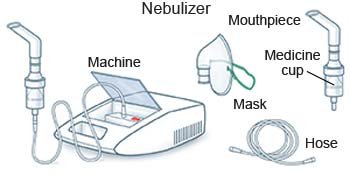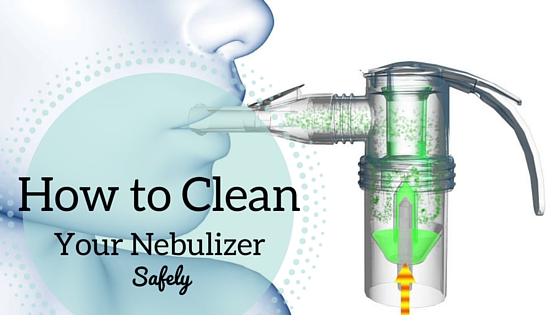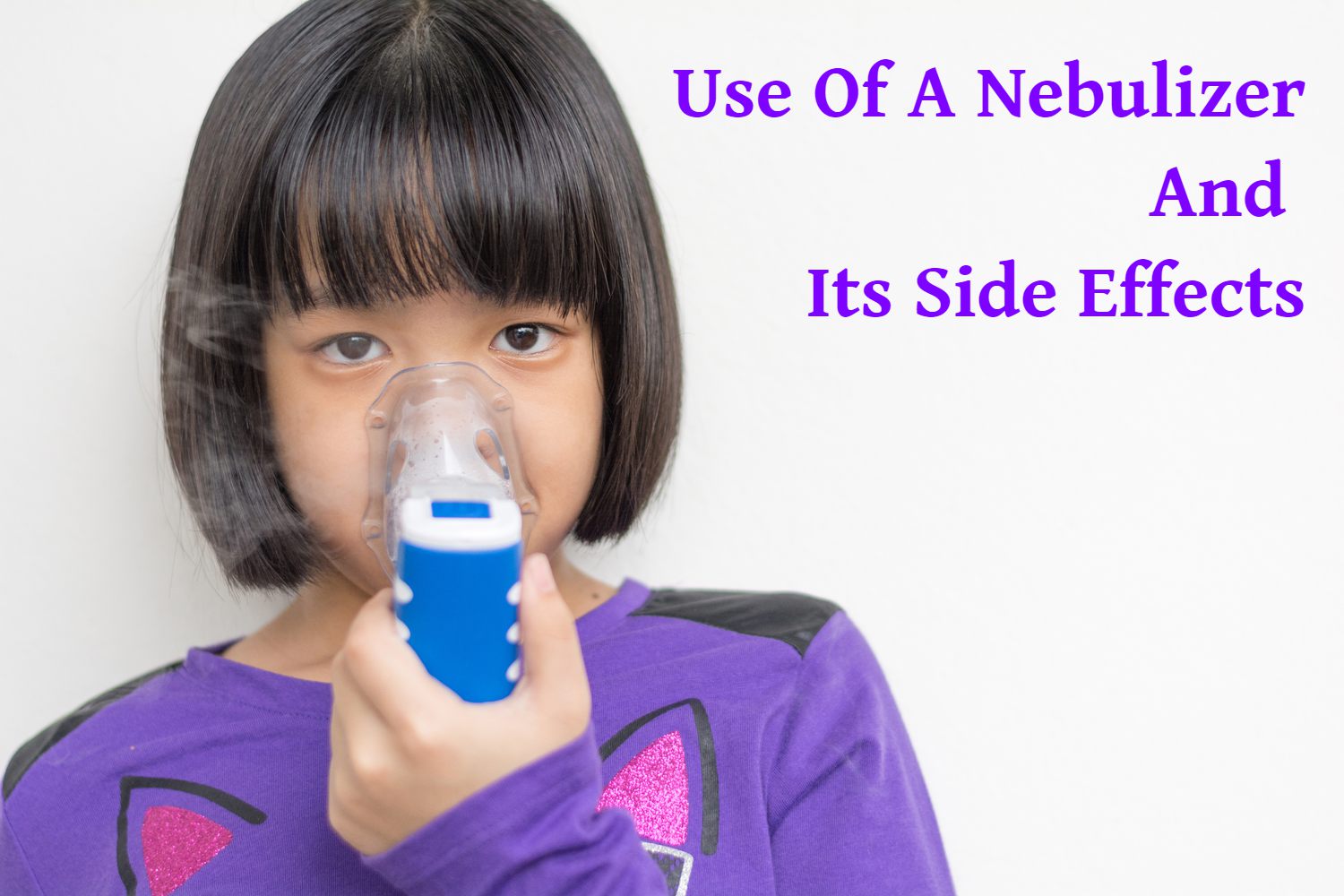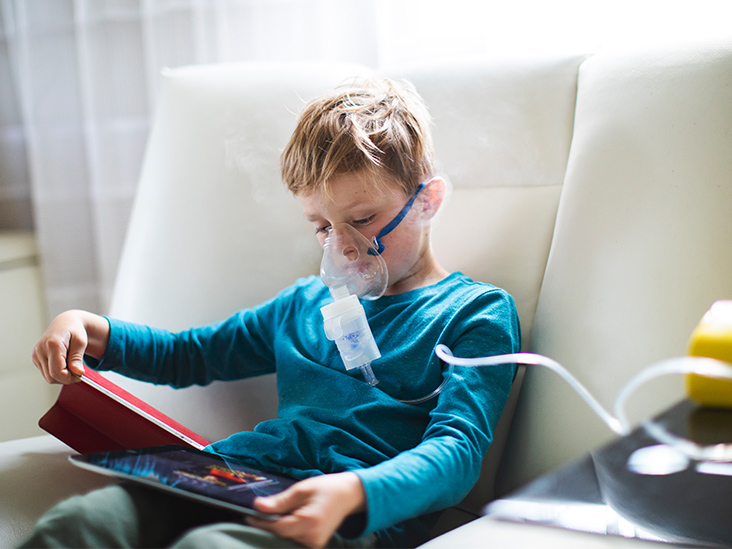If you’re looking to breathe easier and relieve your asthma symptoms, you may be considering getting a nebulizer. However, if you don’t have one yet, it can be hard to know what exactly this device does and how it works. In this article, we’ll talk about the benefits of using a nebulizer, as well as some tips on how to use it correctly so that you get the most benefit from your treatment.
What is a nebulizer?
 Nebulizers are machines that turn medicine into a gas that’s easy to breathe in. They’re used to treat diseases like asthma, COPD, cystic fibrosis, emphysema, chronic bronchitis and other lung conditions. Using a nebulizer lets you breathe in medications without getting an injection or having to swallow them in pill form. Because nebulizers break down medication into an inhalable mist, they’re often called breathing treatments. Using a nebulizer also puts less strain on your lungs than oral medications because it delivers smaller doses of drugs more frequently over time—and you don’t need to do anything except breathe normally during treatment.
Nebulizers are machines that turn medicine into a gas that’s easy to breathe in. They’re used to treat diseases like asthma, COPD, cystic fibrosis, emphysema, chronic bronchitis and other lung conditions. Using a nebulizer lets you breathe in medications without getting an injection or having to swallow them in pill form. Because nebulizers break down medication into an inhalable mist, they’re often called breathing treatments. Using a nebulizer also puts less strain on your lungs than oral medications because it delivers smaller doses of drugs more frequently over time—and you don’t need to do anything except breathe normally during treatment.
Nebulizers have been used to treat lung conditions for more than 100 years. Even though they’ve been around for a long time, many people don’t know about their benefits or uses. Here are some important facts about nebulizers you may not know—but will want to keep in mind if you use them regularly as part of your treatment plan. Nebulizers are used to treat patients with respiratory conditions like asthma, chronic bronchitis, and the like, but can also be useful for children with colds, sinus infections, and the like that involve congested breathing.
How do I use my nebulizer?
 If you’re using a nebulizer for acute asthma attacks, talk to your doctor about how often to use it. He or she may recommend that you use it every four hours for a few days. If you’re using it for other medical conditions, like COPD or cystic fibrosis, start with two times per day and see how your body responds before increasing dosage. Also consider drinking plenty of water when using a nebulizer. Dehydration can exacerbate your condition, so try to drink 16 ounces of water or another beverage that contains electrolytes before each session.
If you’re using a nebulizer for acute asthma attacks, talk to your doctor about how often to use it. He or she may recommend that you use it every four hours for a few days. If you’re using it for other medical conditions, like COPD or cystic fibrosis, start with two times per day and see how your body responds before increasing dosage. Also consider drinking plenty of water when using a nebulizer. Dehydration can exacerbate your condition, so try to drink 16 ounces of water or another beverage that contains electrolytes before each session.
It’s also important to use your nebulizer properly. Use it in a well-ventilated room. Make sure that you put enough medicine in your nebulizer to reach a concentration of two to four milligrams per liter of medicine, but don’t fill it all the way because you’ll want to let air flow through it when using it. Turn on your nebulizer before taking a breath, so that medication can be delivered while you inhale deeply.
How do I clean my nebulizer?
 If you’re using a nebulizer to treat asthma, you may be wondering how to clean it. It’s important to keep your nebulizer clean because mold and other harmful organisms can grow in your medication tank over time. To prevent that from happening, follow these instructions for cleaning a nebulizer every time you use it. Before doing anything else, make sure that any medical equipment is unplugged from its power source so that nothing can get damaged in case of an accidental spill or electrical issue. This is especially important if your nebulizer has prescription medicine inside of it.
If you’re using a nebulizer to treat asthma, you may be wondering how to clean it. It’s important to keep your nebulizer clean because mold and other harmful organisms can grow in your medication tank over time. To prevent that from happening, follow these instructions for cleaning a nebulizer every time you use it. Before doing anything else, make sure that any medical equipment is unplugged from its power source so that nothing can get damaged in case of an accidental spill or electrical issue. This is especially important if your nebulizer has prescription medicine inside of it.
Make sure your medication tank is empty before cleaning. If there is any residual medication, remove it using a needle or syringe, making sure to keep it upright at all times to prevent spilling. It’s also important that you clean your nebulizer immediately after each use so that harmful organisms don’t have a chance to grow in your tank. Using warm water and soap while rinsing with filtered water will help keep germs from growing. Dry it completely after rinsing to ensure that no additional germs can grow inside of it.
Where can I buy a nebulizer?

Nebulizers are available online as well as at most local drugstores. You can find them in a variety of models, but you should take care to find one that has all of your desired features. If you purchase your nebulizer online, read customer reviews before making a final decision. It’s better to be safe than sorry! Choosing A Nebulizer: There are many different brands and styles of nebulizers available today; if you’re interested in purchasing one, it’s best to understand what type will work best for your needs. Are you looking for something that can help improve lung capacity? Some models can also be used in combination with medicine to clear mucus from airways or lungs.
You may be struggling with your breathing, so a nebulizer may be of interest to you. A nebulizer is a device that uses compressed air to deliver medication into your lungs or bronchial tubes. This can help treat various respiratory conditions, including asthma, chronic obstructive pulmonary disease (COPD), cystic fibrosis, and other lung diseases. A nebulizer is useful in alleviating the symptoms of certain breathing disorders, such as opening airways and breathing normally. It should be noted, however, that nebulizers will not heal the root cause of your respiratory illness. it may, in fact, help you cough or wheeze less so that you can live more comfortably.
Is it expensive to own a nebulizer?

Not anymore. Prices for nebulizers are quite reasonable, ranging from less than $50 to a few hundred dollars or more. And with rebates, coupons, discounts and other cash-back offers, you might be able to purchase one for just a few dollars more than your out-of-pocket expenses. Many insurance plans will also cover part of your cost, as will Medicare if you qualify. So ask around—you may find that it’s actually a lot easier to own a nebulizer than you might think!
Once you do have your nebulizer, using it is affordable too. Most people who use a nebulizer will only need to purchase replacement parts or accessories once every few years, depending on how often they need to replace their specific part. For example, a set of nebulization cups typically costs between $20 and $30 to replace, while an atomization cup might cost less than $10. But there are exceptions—if you use an electronic nebulizer, for example, you’ll probably need to purchase a new drug-delivery module at least once per year. An advantage of electronic models is that each replacement component is inexpensive.
Which are the different kinds of nebulizers available in the market?
Nebulizers are typically either jet nebulizers or ultrasonic nebulizers. Ultrasonic nebulizers tend to be easier to use, as they usually operate automatically. They also tend to be quieter than jet nebulizers. Jet nebulizers, on the other hand, are much more portable; many handheld models can easily fit in a purse or bag for use when away from home. Most health care providers prefer jet nebulization because it provides smoother inhalation of medication into your lungs.
Jet nebulizers operate on a simple principle—compressed air passes through a chamber, where it picks up medication that is then sprayed into your lungs. Ultrasonic nebulizers, on the other hand, use vibration to create droplets of liquid that are larger than with jet nebulizers. These droplets are inhaled into your lungs more easily than fine air particles from jet nebulizers. Even so, some users find that jet nebulizers produce better results for them when using medications such as Albuterol or Atrovent for treating asthma or COPD, some ultrasonic units have their own air compressors. for some devices, an external compressor is needed to provide sufficient pressure for inhalation therapy.
Are there any side effects?

Nebulizers produce a fine mist of medicine, which delivers it directly to your lungs. This means that less medicine is lost in the process and has a faster, more noticeable effect. It should be noted, however, that some medications will be absorbed more quickly when taken as a nebulizer rather than as other medications. Therefore, one must make sure to take sufficient time in researching possible side effects associated with the use of nebulizers. By doing this, you’ll know what to look for and when to go to the doctor.
Side effects for using a nebulizer are rare, but it may make your nose feel dry. If you are particularly sensitive to dryness, try washing your face before you take your medication. Additionally, a common side effect of nebulizers is dry mouth. The lack of saliva can be mitigated by consuming a lot of water or chewing sugarless gum.













